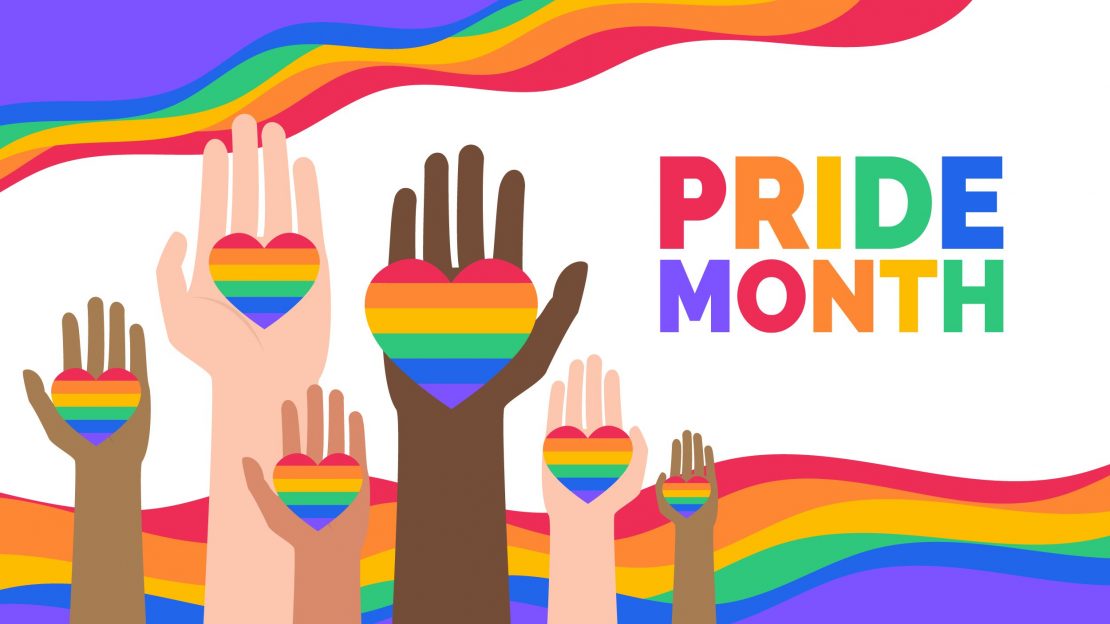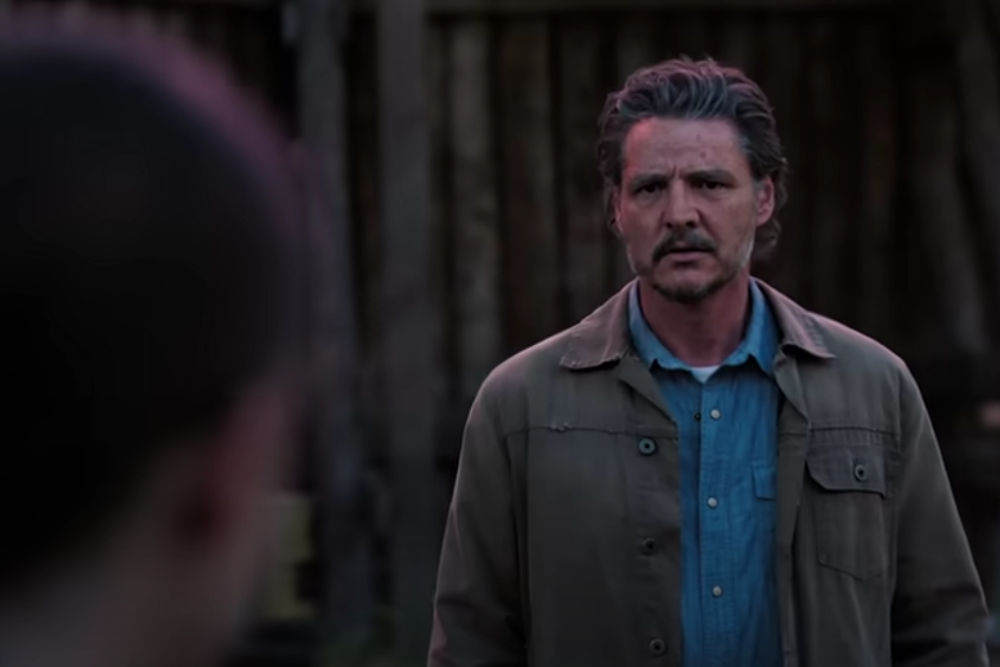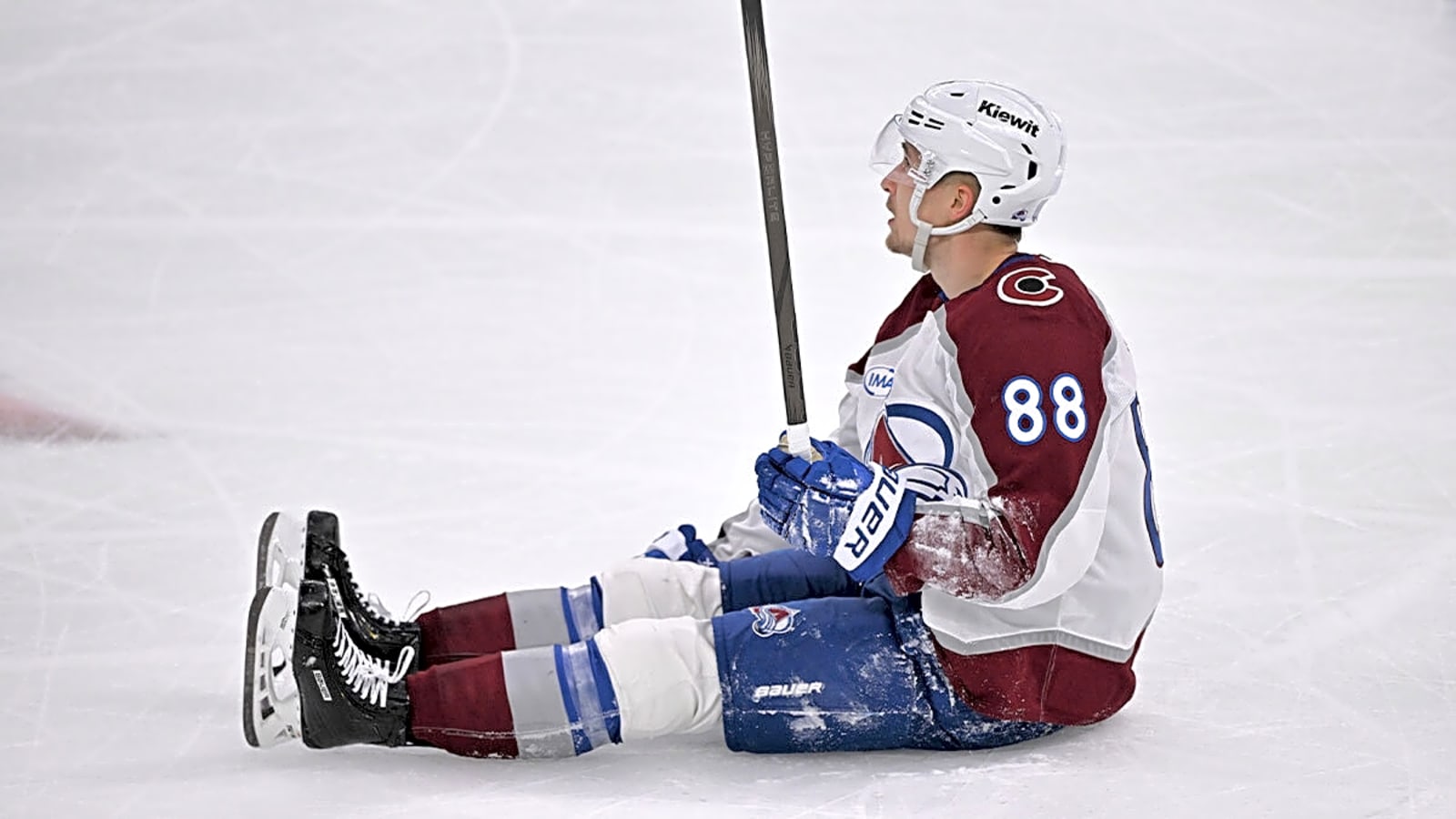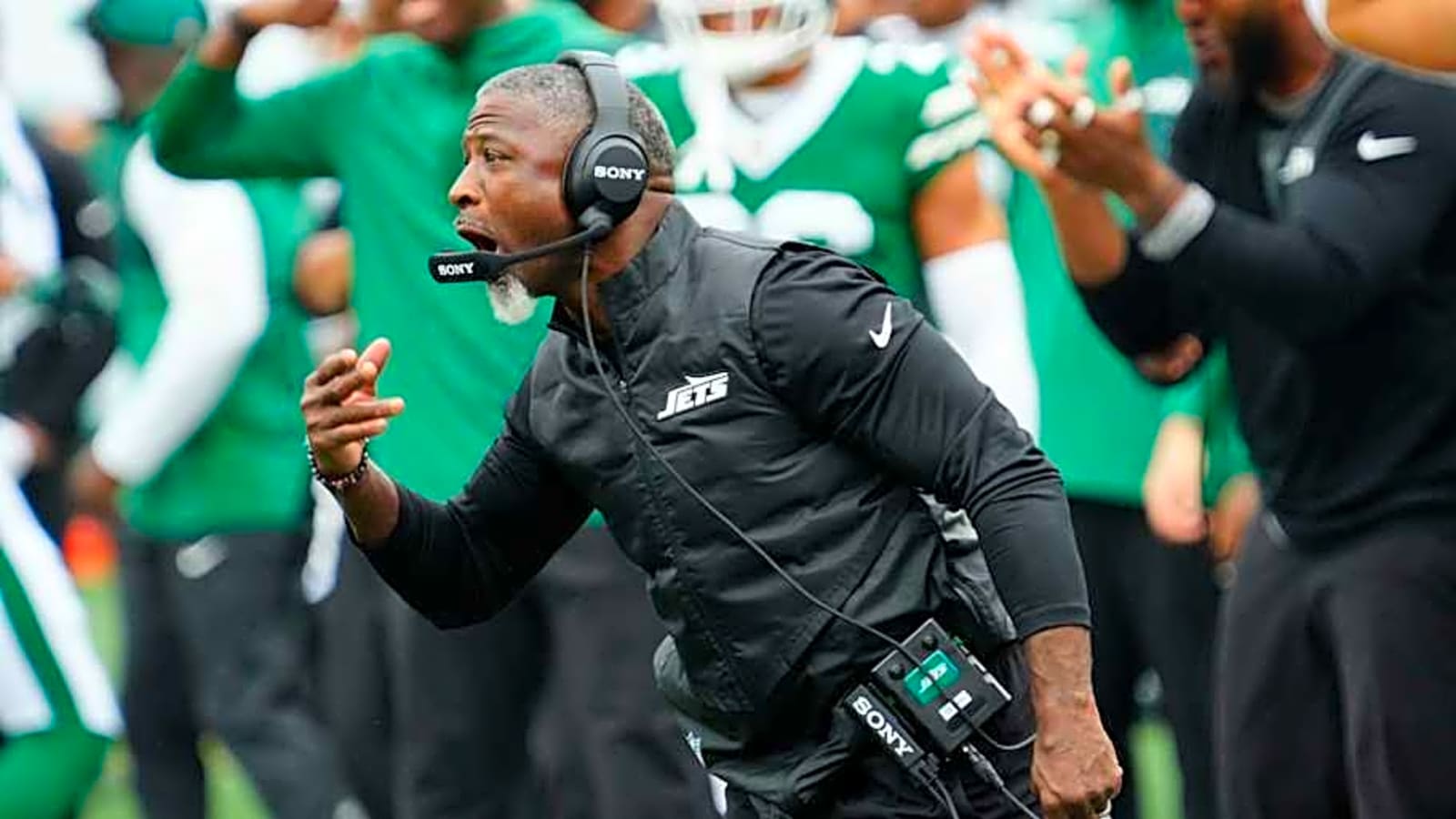BREAKING: Avalanche’s Gabriel Landeskog Faces Backlash After Refusing to Celebrate Pride Month, Calls "Woke" Movement Undeserving of Celebration
In a controversial and polarizing move, Colorado Avalanche captain Gabriel Landeskog has ignited a firestorm of debate across the NHL and beyond after announcing he will not be celebrating Pride Month this year. The comments, made during a routine media availability after practice, have raised eyebrows, sparked heated reactions, and thrown the league into the spotlight for all the wrong reasons.
The Shocking Quote
Landeskog, one of the NHL’s most respected and high-profile leaders, made his stance clear when questioned about Pride Month and the ongoing push for inclusivity in sports. With his trademark composure, the Avalanche star delivered a statement that was both unexpected and incendiary:
"I respect everyone, but I don’t think ‘woke’ deserves to be celebrated. Hockey should be about competition and unity — not politics."
The statement, simple yet direct, immediately went viral and sent shockwaves through the NHL community. Landeskog’s words stirred a frenzy of reactions on social media, sports talk shows, and public platforms, with opinions split like never before.
The Fallout: Fans and Teammates React
Landeskog’s comments were met with an immediate and intense response. On social media, the hashtags #StandWithLandeskog and #CancelLandeskog began trending within hours, reflecting the deep division his remarks caused.
Supporters of the Avalanche captain hailed his words as a bold stand for principle. Many praised his willingness to reject what they see as the increasingly political nature of sports, especially in light of movements such as Black Lives Matter and Pride Month celebrations. These fans argue that sports should remain a place for competition and an escape from societal pressures.
One fan tweeted: “Landeskog is just telling it like it is. Hockey doesn’t need politics. It’s about the game, not agendas.”
However, the criticism was equally loud. Detractors called his stance "out of touch" and "a dangerous step backward" for the inclusivity efforts the NHL has worked toward in recent years. Critics emphasized that Landeskog’s influence as one of the league’s most recognizable captains carries weight, and distancing himself from Pride Month could harm progress in the fight for equality and visibility for the LGBTQ+ community.
One user wrote: “I’m disappointed in Landeskog. He’s a role model, and his comments suggest inclusion isn’t important. That’s not leadership.”

NHL’s Response: A Delicate Situation
Sources within the NHL have expressed concern over Landeskog’s comments, fearing the potential fallout could damage the league’s reputation as it continues aligning with movements that advocate for social justice, LGBTQ+ rights, and equality.
“The NHL has invested significant time and resources into inclusivity initiatives, and Landeskog’s words could complicate that,” one league insider revealed. “Personal beliefs are one thing, but when it comes from a captain and franchise cornerstone, it carries extra weight.”
While the NHL has yet to release an official statement, executives are reportedly monitoring the situation closely. The league has long positioned itself as an ally to the LGBTQ+ community, with annual Pride Nights and partnerships with advocacy groups. Landeskog’s comments mark a stark departure from that messaging.
Avalanche’s Response: Silence Amidst Tension
The Colorado Avalanche organization has not issued a statement, nor have Landeskog’s teammates publicly commented. Analysts speculate that the locker room may be grappling with internal tensions, though players have remained quiet for now.
The Avalanche fanbase appears just as divided. Some stand firmly behind their captain, while others feel betrayed by remarks they view as contrary to the spirit of unity and inclusion.
“I’ve been an Avs fan for 20 years, but this hurts,” said one fan outside Ball Arena. “He’s the face of our team, but this feels like he’s ignoring what matters most to a lot of people.”

The Bigger Picture: Culture Wars in Sports
Landeskog’s decision has placed him at the center of the culture wars increasingly playing out in professional sports. While some see his comments as a principled rejection of “woke” politics, others argue they undermine progress and inclusivity the NHL has championed in recent years.
The controversy highlights the ongoing tension around whether athletes should use their platforms solely for sports or also for broader societal issues. Landeskog’s stance underscores just how divided fans—and leagues—remain on this question.
The Future: A Long Road Ahead
Whether Landeskog’s comments will have lasting repercussions remains unclear. What is certain is that they’ve reignited debate over the role of politics in sports, the meaning of unity, and the responsibilities of athletes in leadership positions.
For now, Gabriel Landeskog must navigate the fallout, while the NHL weighs how to preserve its inclusivity initiatives amid growing backlash. One thing is for sure: his words have left a mark, but whether they strengthen or weaken his legacy as captain remains to be seen.
The Last of Us triumphs amid Emmy recognition drama


Post-apocalyptic series navigates awards season success while fans question overlooked performances
The Last of Us has cemented its position as television’s premier post-apocalyptic drama, securing its inaugural Emmy victory for Season 2 while simultaneously sparking debate about the Television Academy’s recognition patterns. The HBO series claimed the Outstanding Sound Editing award for a Comedy or Drama Series, specifically honoring the haunting episode “Through the Valley” — widely regarded as the season’s most emotionally devastating installment.
Emmy Performance Reflects Mixed Reception
The series accumulated 16 Emmy nominations this cycle, representing a notable decline from its freshman season’s impressive 24-nomination haul. This reduction has generated considerable discussion within industry circles about sophomore season expectations and voter fatigue.
Pedro Pascal earned recognition in the Best Actor category despite his limited screen presence across merely three episodes, demonstrating the lasting impact of his portrayal of Joel. Bella Ramsey secured a Best Actress nomination for their compelling performance as Ellie, while the supporting cast garnered multiple acknowledgments. Kaitlyn Dever (Abby), Catherine O’Hara (Gail), Jeffrey Wright (Isaac), and Joe Pantoliano (Eugene) all received acting nominations, showcasing the ensemble’s collective strength.
Technical Excellence Dominates Recognition
Beyond performance categories, The Last of Us demonstrated its technical superiority through nominations spanning Best Production Design, Casting, Picture Editing, Contemporary Makeup, Prosthetic Makeup, Music Supervision, Sound Mixing, and Special Visual Effects. The series’ behind-the-scenes documentary also earned recognition in the Nonfiction Short category, underscoring the production’s comprehensive attention to detail.
These technical nominations highlight the show’s commitment to authentic world-building within its fungal apocalypse setting, from intricate prosthetic work creating the infected creatures to meticulous sound design that immerses viewers in this dangerous landscape.
Last Community Voices Disappointment
Fan communities expressed frustration over perceived oversights, particularly the absence of writing and directing nominations. Many supporters specifically championed Isabela Merced’s portrayal of Dina, arguing her nuanced performance warranted Television Academy recognition.
Neil Druckmann, co-president of Naughty Dog and the series’ co-creator, maintained diplomatic gratitude despite these omissions. His statement emphasized appreciation for seeing The Last of Us Part II‘s narrative find renewed appreciation through television adaptation, attracting fresh audiences to the franchise.
Future Prospects Generate Anticipation
Season 3 confirmation has energized the fanbase, with promised focus on Abby’s storyline generating particular excitement. The upcoming season represents an opportunity to explore character development beyond the source material’s constraints, potentially addressing fan concerns about narrative pacing and character representation.
The original season’s remarkable success — capturing eight Emmy victories from 24 nominations, including Nick Offerman’s Outstanding Guest Actor win — established formidable expectations for subsequent installments. This legacy creates both opportunity and pressure for the production team.
Competitive Television Landscape
This year’s Emmy competition featured formidable contenders including HBO‘s The Penguin and The White Lotus, alongside Apple’s Severance, all commanding significant nomination tallies. This competitive environment reflects television’s current golden age, where multiple series demonstrate exceptional quality simultaneously.
The Last of Us continues navigating this saturated marketplace while maintaining its distinct identity within the horror-drama genre. The series’ ability to balance intimate character moments with large-scale apocalyptic storytelling distinguishes it from conventional genre offerings.
The show’s Emmy recognition validates its artistic achievements while highlighting ongoing conversations about awards recognition patterns. As the series prepares for its third chapter, both critics and audiences anticipate whether it can recapture its inaugural season’s overwhelming success while addressing community concerns about character development and narrative choices.
The post-apocalyptic drama’s journey through awards season demonstrates how adaptations can honor source material while forging independent creative paths, ensuring The Last of Us remains essential viewing for both gaming enthusiasts and television connoisseurs alike.




